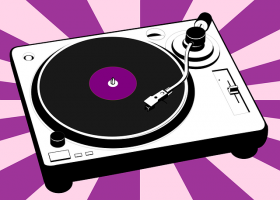
Apple’s iPhone has perhaps the most pervasive marketing in the world of technology. It’s obvious to see. From a technological standpoint, if the many people online and in real life are right, the iPhone is not more powerful than the other things on the market—and yet succeeds anyway.
But, with that said, it does have something above all the competition. Several things. The iPhone has the qualities of being comfort zone appealing, having a strong ease of use, a perceived high level of security, and, to top it off, all other manners of effective sales tactics ensuring that it has customers.
And since an iPhone, perhaps not on purpose, tends to die after around two years of use, and become a brick, it keeps those same qualities fresh in the mind.
Let me break it down: since I just rattled the qualities off and did not elaborate. Being “comfort zone appealing” is something which all products have to some degree, but the iPhone’s user interface makes those of us who grew up with smart phones (often an iPhone) need to run back to the Sprint store in Clearwater Mall for the newest model every single time we need an upgrade.
Why, you might say? Well, ask any older individual, and they have a high probability of telling you just how hard learning to use a new phone can be, so when someone already knows how to use one, they are less likely to want to rely upon a different system and relearn.
This moves right into the second part: the ease of use. Because, say whatever you want about “processing power,” the iPhone is intuitive, and always working to improve that aspect.
Also, as technology progresses, the threat of computer viruses becomes more and more frightful, and thus the perception (and good marketing can give anything a good perception) of iPhones being a safe, “naturally” virus-proof piece of tech is appealing. Easy to go about marketing something if it is safer than other tech—and whether that’s true or not becomes irrelevant to sales.
Finally, to top off my gushing list, the company levels everything it has for the sake of making you want the next device. iPhones receive some of the most stellar advertisements I’ve seen in a long time. They want to make the mouth water of any person who likes esthetics in technology. They want each new model to make your jaw drop to the floor, and your tongue hang to your knees.
Now, bringing this all together, and back to my initial point, these factors combined make for an interesting outcome. Because, sure, maybe some other device is better than the iPhone. Maybe iPhone tech is garbage compared—though I doubt it’s that big of a difference—but it doesn’t matter. Because once you’re an iPhone user, you need a herculean effort to break away.
The situation of iPhones playing nicer with other iPhones through the sheer level of exclusivity that Apple tries to give off with its devices, the prevalence of it in media, and its iconic nature, makes breaking out of the cycle like betraying a friend.
The iPhone is one of the most powerful examples of how good marketing can overcome what some may claim is a shortfall of a product. It is a shining pinnacle of what you can do with perception through marketing and PR.
It’s, for lack of knowledge of a better term, the “iPhone way,” and with it: Apple holds a stake in the world at large.
So, they do have—inarguably—the best phone.
---
If you liked this article, you can read more of Brandon Scott’s work over at The Hive, or on his website: www.coolerbs.com







